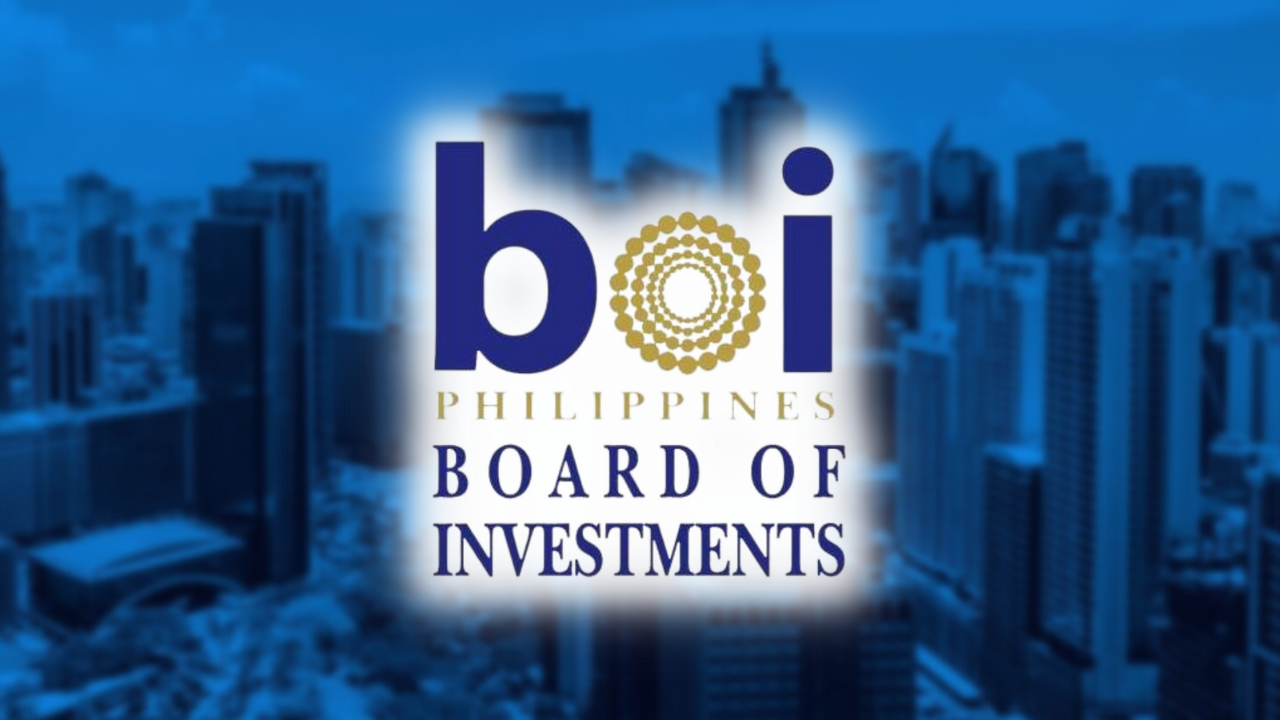BOI eyes P1 trillion investment approvals in 2025

Photo from BOI/FACEBOOK
MANILA – The Board of Investments (BOI) is targeting to register P1 trillion worth of projects in 2025, eyeing for three consecutive years of investment approvals at a trillion-peso level.
Under the National Expenditure Program (NEP) 2025, the BOI is looking into lower investment pledges next year from its 2024 NEP target of P1.151 trillion.
During the Department of Trade and Industry’s (DTI) House Committee on Appropriations budget briefing Wednesday, DTI Undersecretary and BOI Managing Head Ceferino Rodolfo said there are some constraints that needed to be addressed to continue attracting investments, especially from foreign sources, into the country.
READ: BOI raises 2024 investment approval target to P1.6T
He cited challenges that are often cited by investors during their investment missions, which include ease of doing business, power, talent development, and incentives.
Article continues after this advertisementRodolfo said one of the initiatives of the government to ease doing business in the country is the establishment of green lanes to expedite the issuance of permits and licenses for strategic projects.
Article continues after this advertisementHowever, Rodolfo said that in the future, the faster processing of requirements related to starting a business should be available to all sectors.
He said President Ferdinand Marcos Jr.’s focus on harnessing indigenous energy resources will help in addressing high power costs in the country.
The shift to renewables will also help in reducing electricity rates as this will make the country less dependent on imported fuel.
READ: BOI investment approvals surge 65% to P1.16-T in Jan-July
Rodolfo said he also looks at talent development as both a constraint and opportunity for the country to prepare the domestic workforce for the emerging jobs and skills needed in the future.
The DTI has also been active in engaging with stakeholders in the private sector and the academe, as well as in other government agencies to upskill and reskill the current pool of talents.
Moreover, Rodolfo said neighboring countries are becoming more generous in providing incentives to foreign investors, making it a challenge for the Philippines to attract these investments.
“Just to give you an example, Vietnam in March of this year has issued a directive that for strategic projects, for priority projects, they are giving free lease of land plus reimbursement for land clearance expenses of those developing their industrial estate,” he said.
Rodolfo added attracting foreign investments into the country will help build domestic industries and create more jobs for Filipinos.
While building the local industries and facilitating technology transfer, this will help the Philippines become less dependent on imports that will also narrow the country’s trade deficit.
In 2023, Philippine merchandise trade deficit stood at US$52.59 billion.
“What this means is even if we’re the fastest growing economy in the region, much of the growth is being met by importation,” Rodolfo said.
Meanwhile, the BOI gets 6 percent of DTI’s budget for next year or equal to more than PHP600 million.
The BOI is the country’s top investment promotion agency, having the largest investment approvals.